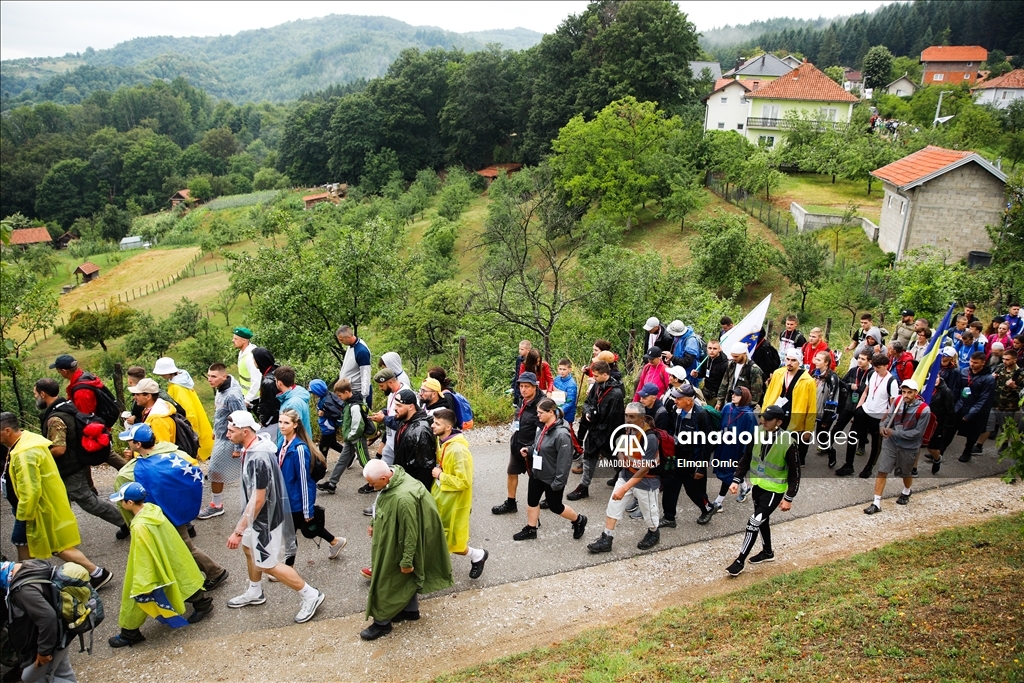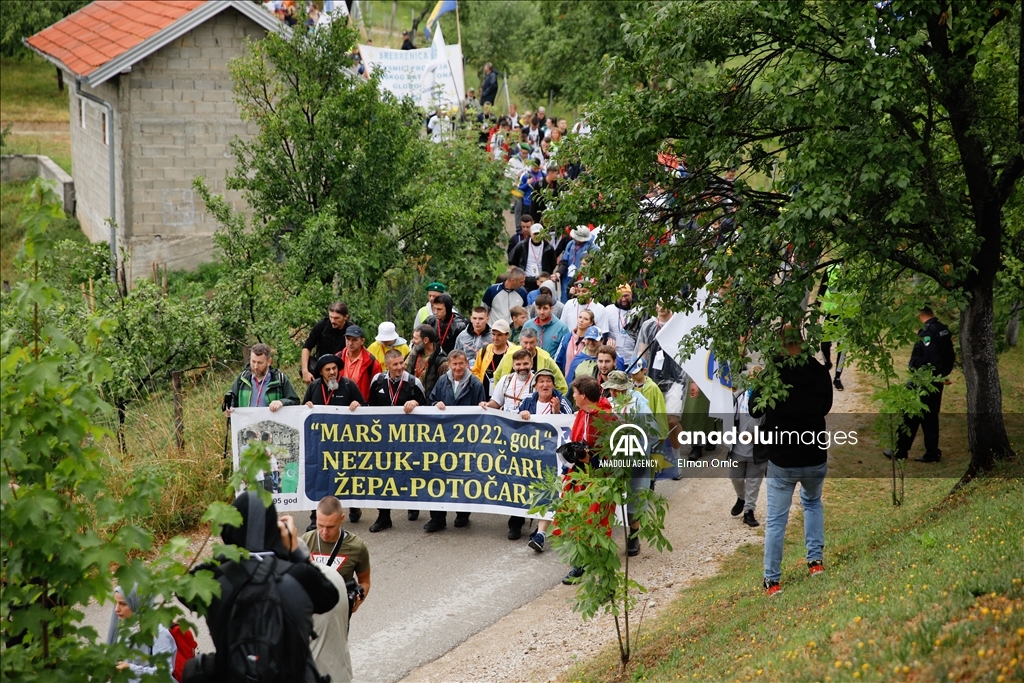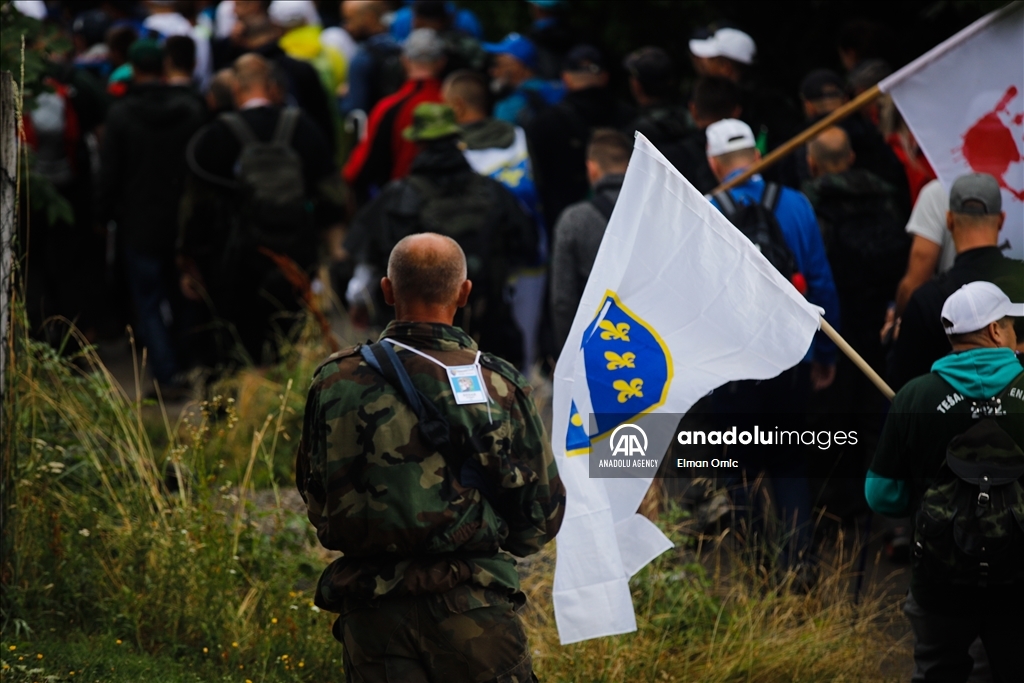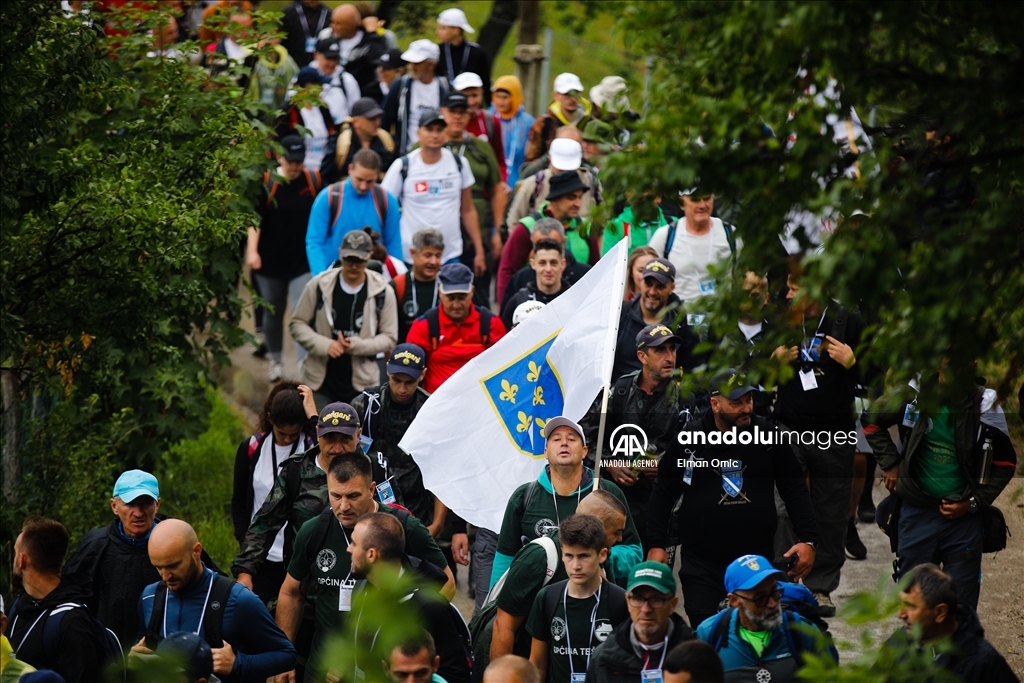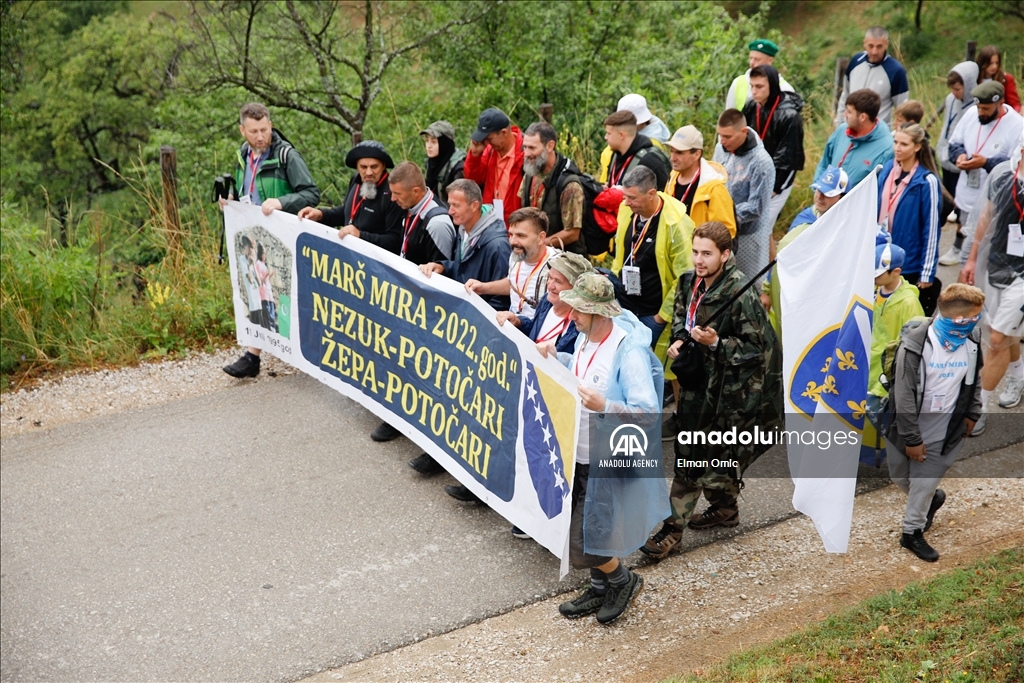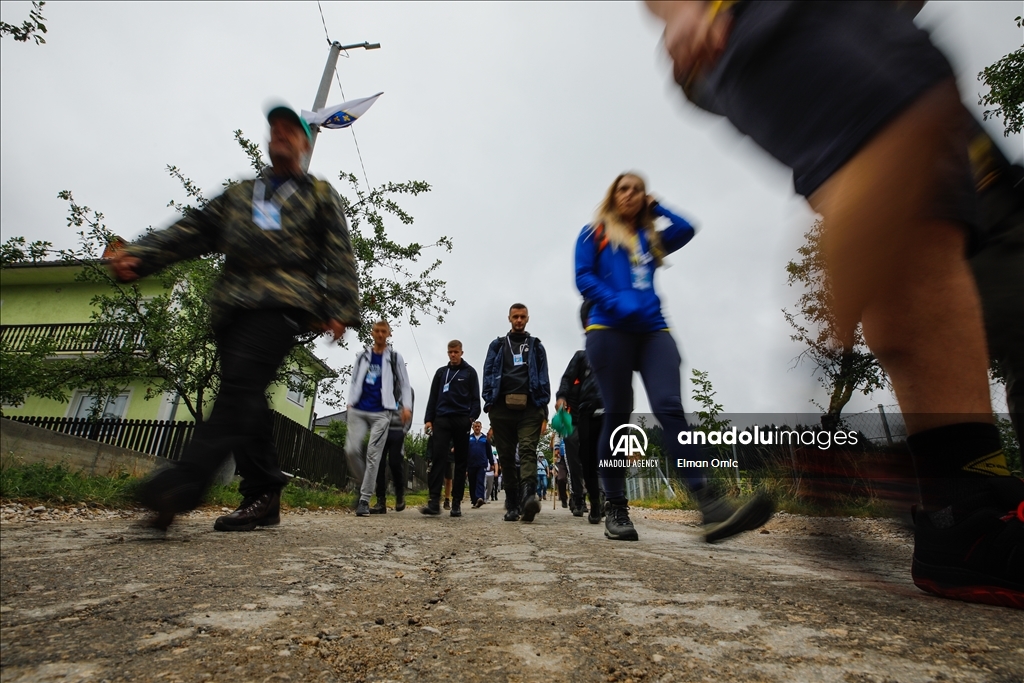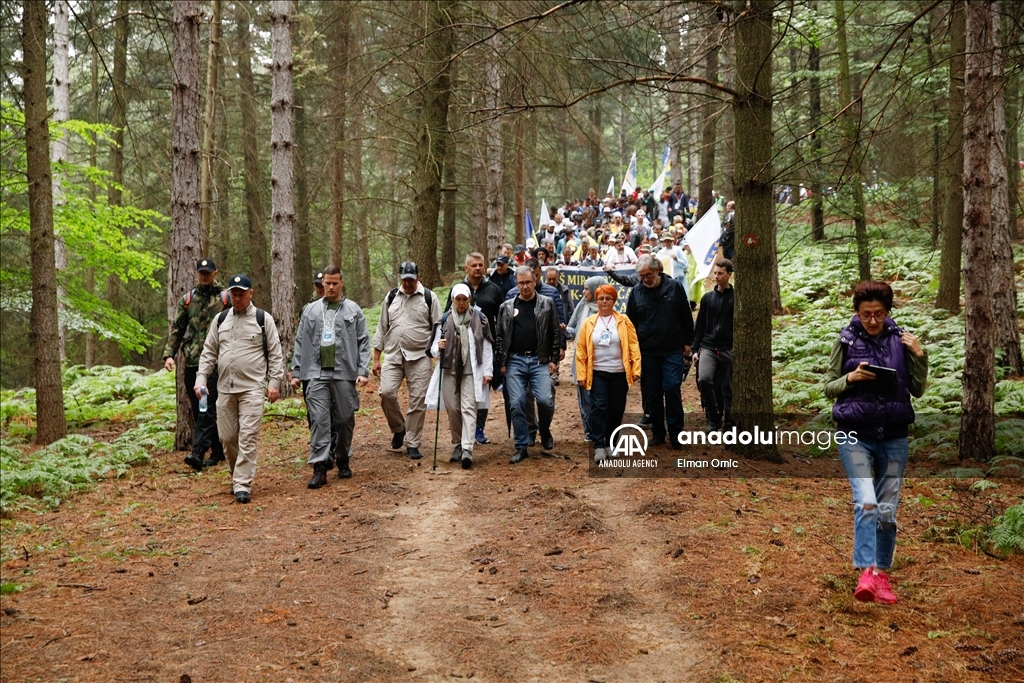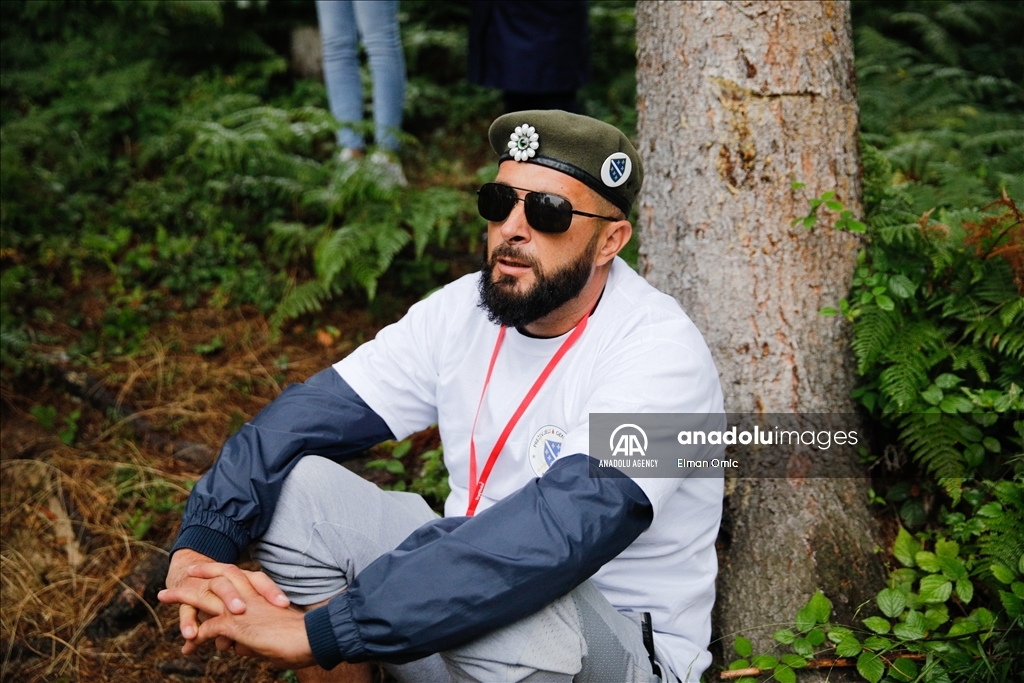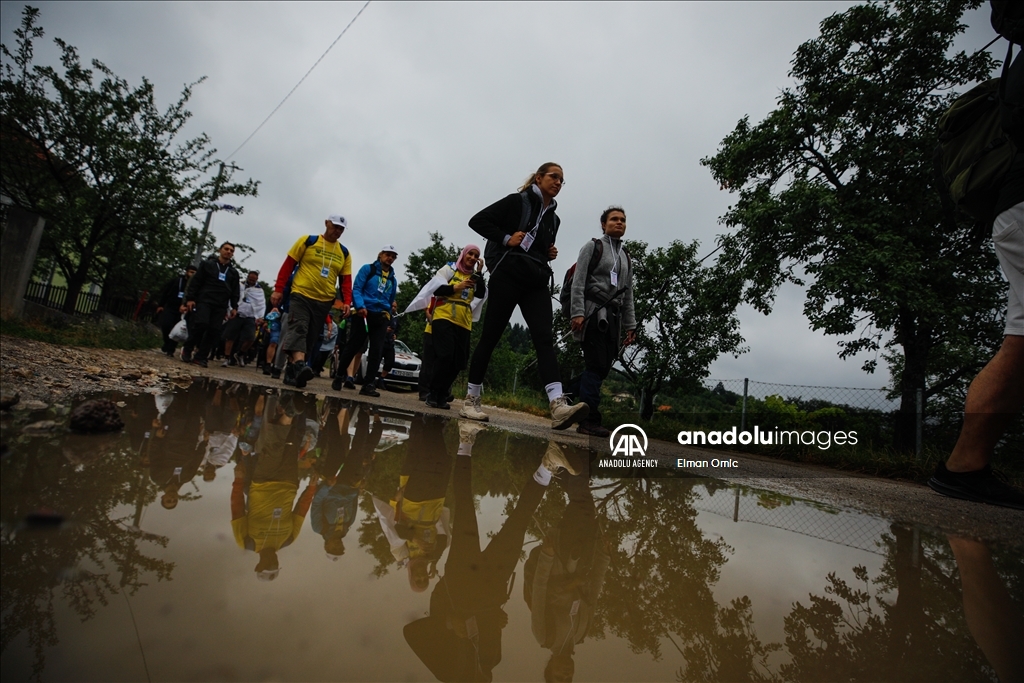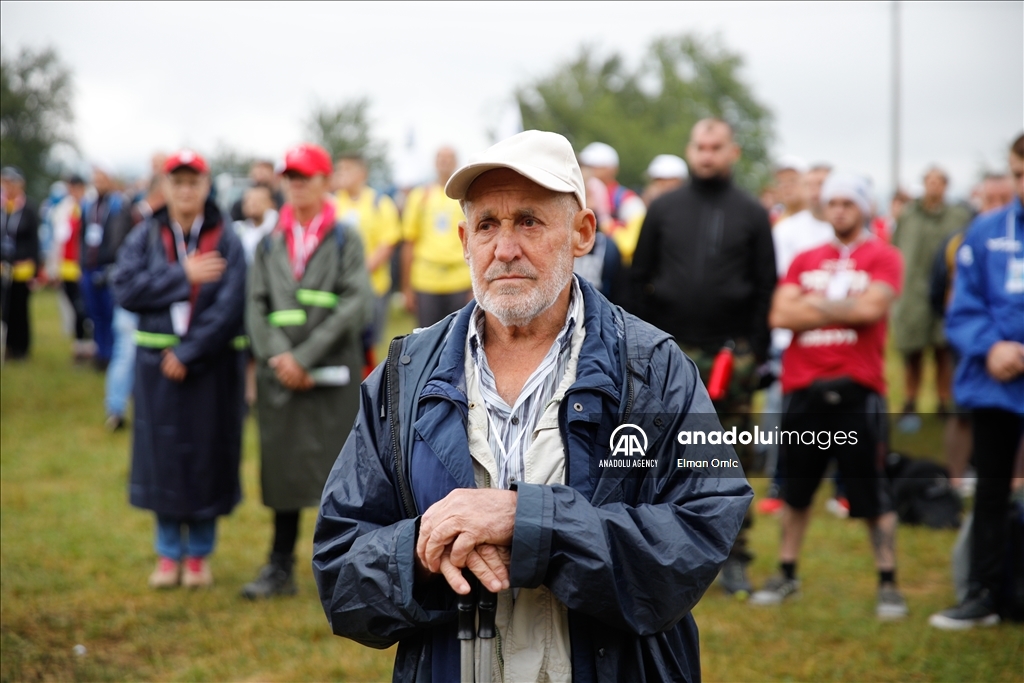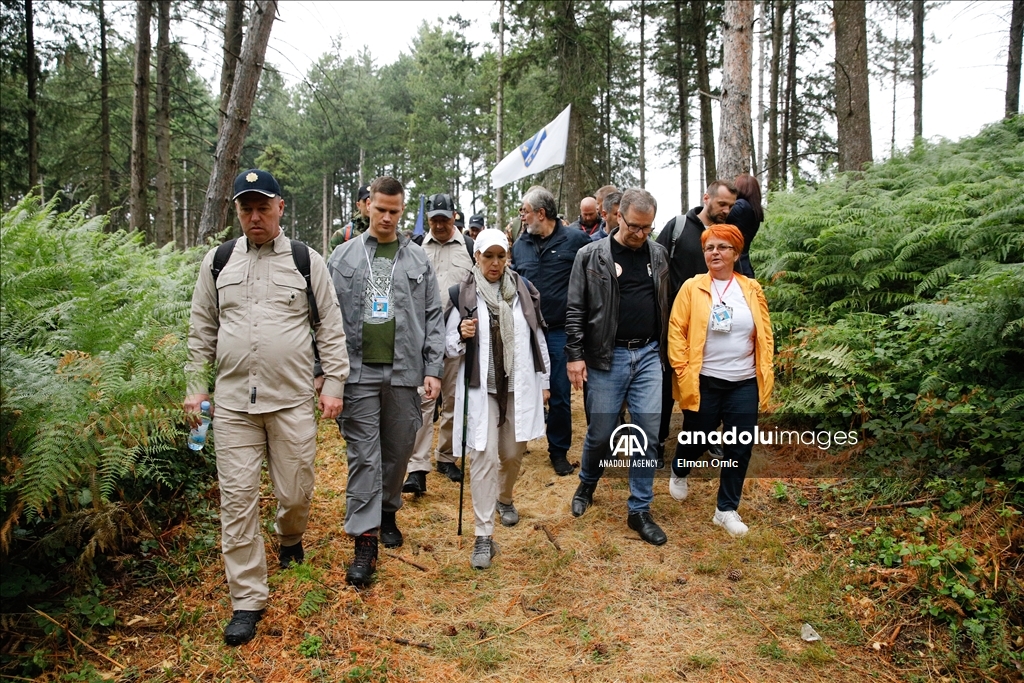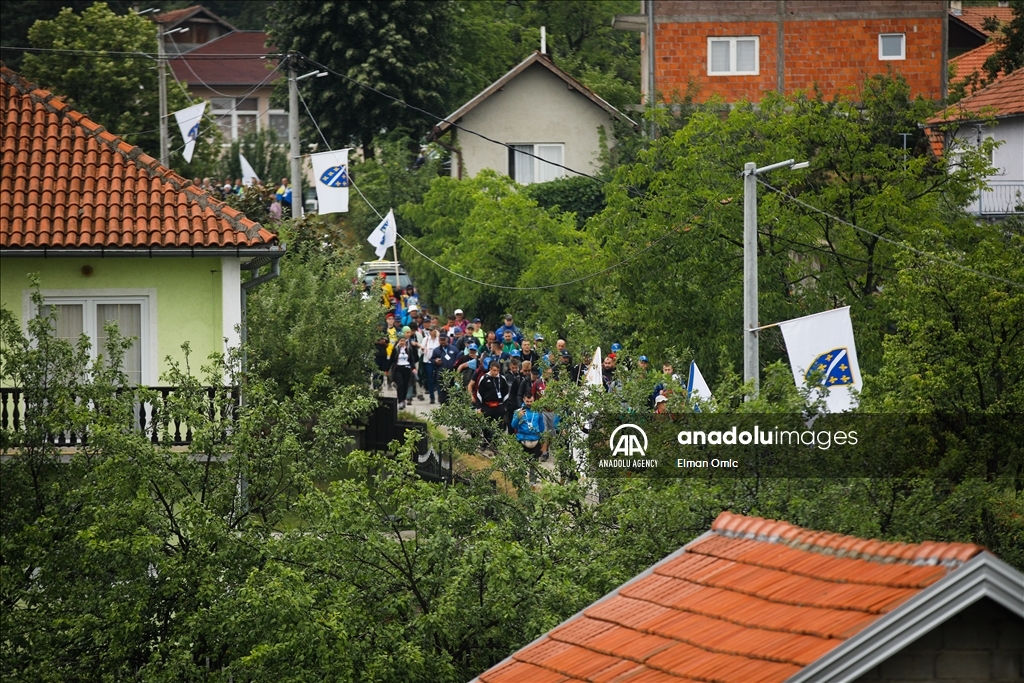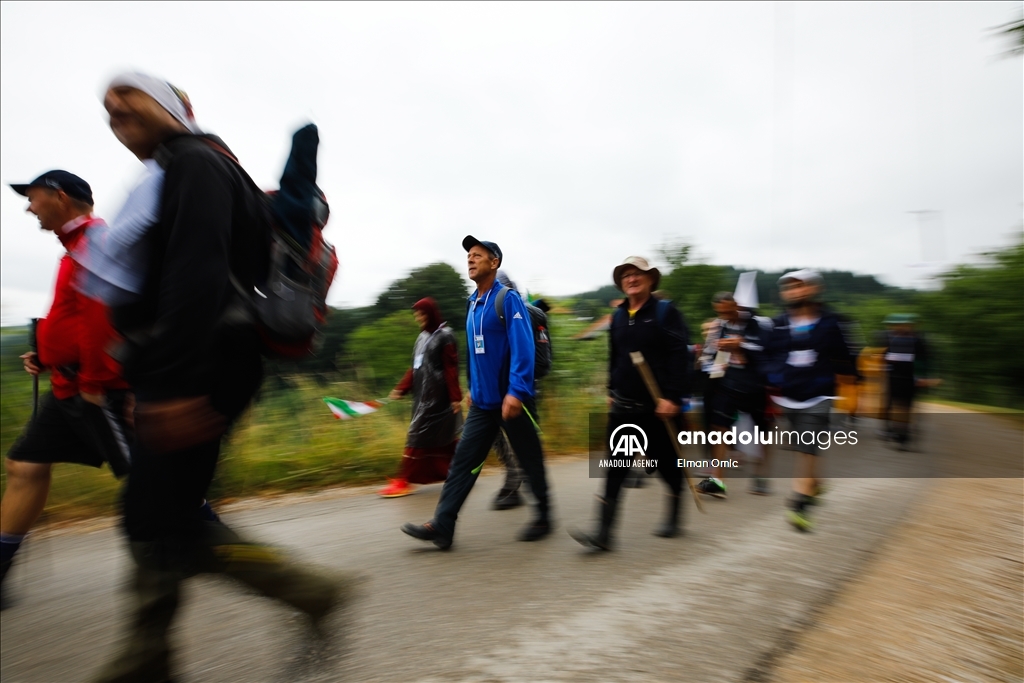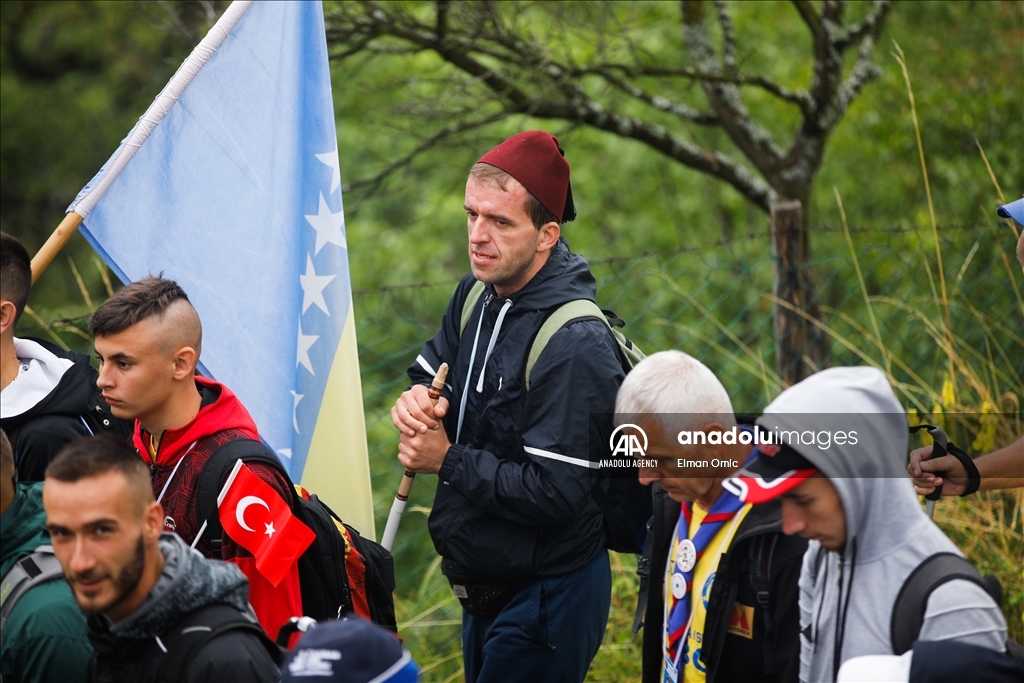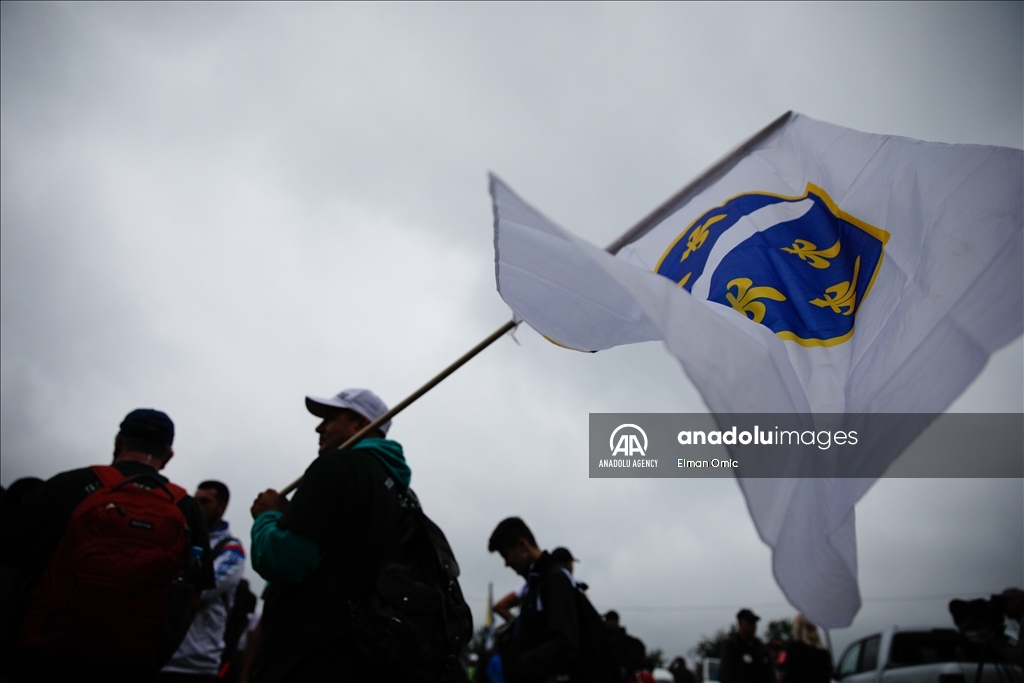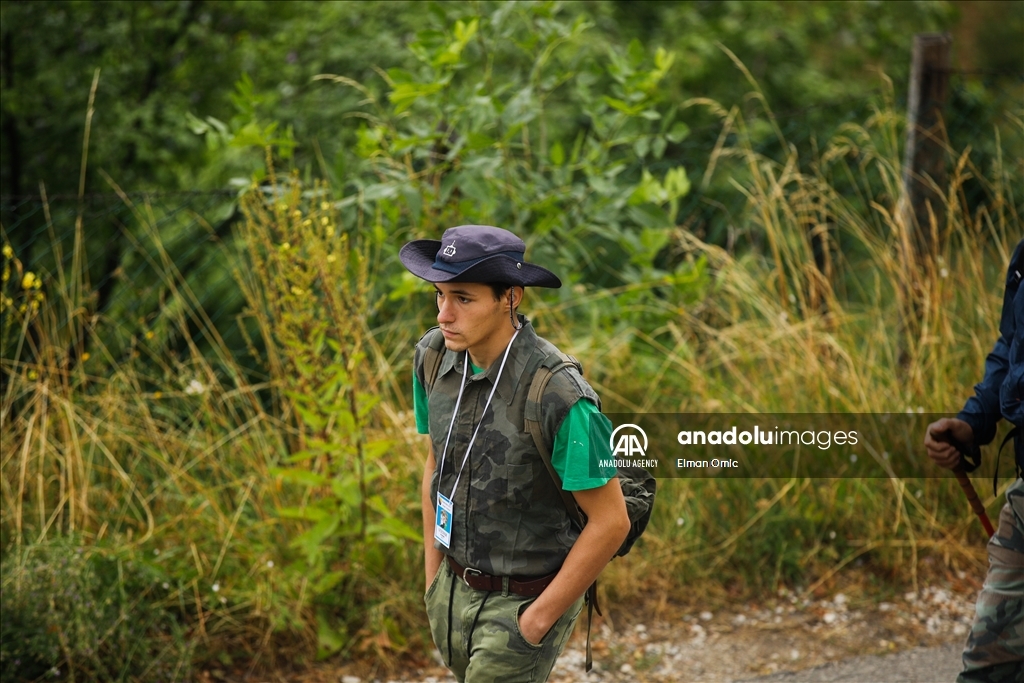Peace march kicks off to honor victims of Srebrenica genocide
Thousands of people to participate in 3-day peace march to commemorate 27th anniversary of genocide
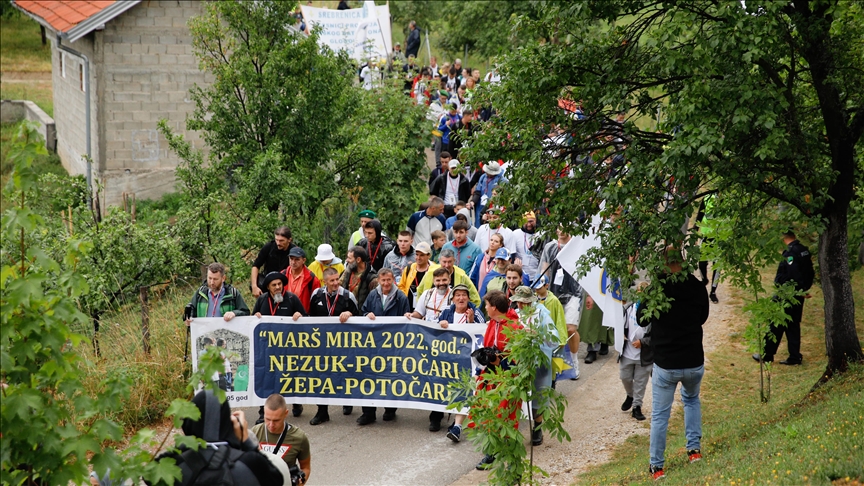 Participants attend the "Peace March" (March Mira) on the path where Bosnian civilians reached Tuzla by walking, to commemorate the 8.372 Bosnian victims within the 27th year of the Srebrenica genocide in 1995 in Nezuk town near Tuzla, Bosnia and Herzegovina on July 08, 2022. Photo: Elman Omic - Anadolu Agency
Participants attend the "Peace March" (March Mira) on the path where Bosnian civilians reached Tuzla by walking, to commemorate the 8.372 Bosnian victims within the 27th year of the Srebrenica genocide in 1995 in Nezuk town near Tuzla, Bosnia and Herzegovina on July 08, 2022. Photo: Elman Omic - Anadolu Agency
BELGRADE, Serbia
A three-day peace march set to commemorate the 27th anniversary of the genocide in Srebrenica kicked off in Bosnia and Herzegovina on Friday.
Traditionally, thousands of people from all over the world come to the Bosnian town of Nezuk every year to participate in the march.
The participants will march for three days, and spend the nights in designated areas.
The march is expected to conclude at a cemetery in Potocari, a village in eastern Bosnia-Herzegovina, northwest of the Srebrenica town, where a funeral prayer and burial ceremony will be held for 50 newly identified victims.
“The number of people registered for the march is 2,000. However, we expect 4,000-5,000 people to attend the march as people can join the march without registration,” said Hamdija Fejzic, the head of the Srebrenica Commemoration Ceremonies Organization Board.
Meanwhile, Tarik Salkunic, a student from Sarajevo University, said he participates in the march to keep spreading the word about what has happened in Srebrenica.
“The peace march should be talked about all the time. It is very important to remember what has happened,” said Salkunic.
Since 2005, thousands of people have attended the "Mars Mira" (Peace March) following the same route used by the Bosniaks when they were fleeing the Srebrenica genocide.
Also on Wednesday, the 11th "Vukovar-Srebrenica Marathon" started from Croatia's capital Zagreb to remember and honor the innocent victims of the Serb forces' attack on Croatia and Bosnia and Herzegovina.
The participants will proceed to Srebrenica from the Ovcara Memorial Cemetery in Vukovar, where a massacre took place in eastern Croatia in 1991, and will reach the Potocari Memorial Cemetery in Srebrenica on Sunday, after a 227-kilometer (141-mile) road journey.
Every year on July 11, newly identified victims of the genocide – which claimed the lives of over 8,000 people – are buried in a memorial cemetery in Potocari, eastern Bosnia.
Thousands of visitors from various countries will attend the funeral service and burials.
After this year’s funeral, the number of burials in the cemetery will rise to 6,721.
Srebrenica genocide
In July 1995, Srebrenica was besieged by Serb forces who were trying to wrest territory from Bosnian Muslims and Croats to form a state.
The UN Security Council declared Srebrenica a “safe area” in the spring of 1993. However, Serb troops led by Gen. Ratko Mladic – who was later found guilty of war crimes, crimes against humanity and genocide – overran the UN zone.
Dutch troops failed to act as Serb forces occupied the area, killing 2,000 men and boys in a single day on July 11.
About 15,000 Srebrenicans fled to the surrounding mountains, but Serb troops hunted down and killed 6,000 more people.
The bodies of the victims of the genocide were found in 570 different parts of the country.
In 2007, the International Court of Justice in The Hague ruled that genocide had been committed in Srebrenica.
On June 8, 2021, UN tribunal judges upheld in a second-instance trial a verdict sentencing Mladic to life in prison for the genocide, persecution, crimes against humanity, extermination and other war crimes in Bosnia and Herzegovina.
Anadolu Agency website contains only a portion of the news stories offered to subscribers in the AA News Broadcasting System (HAS), and in summarized form. Please contact us for subscription options.
